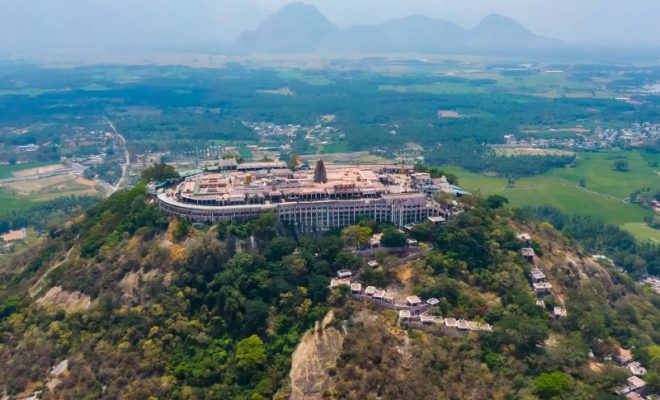Court Forbids Non-Hindus To Enter Tamil Nadu Temples, Says Not A Picnic Spot

The Madras High Court in Tamil Nadu has made a significant ruling about Hindu temples in the state. The court said that non-Hindus are not allowed to go beyond the ‘Kodimaram’ (flagpole) area in Hindu temples.
This decision came after D Senthilkumar filed a petition asking for only Hindus to be allowed into the Arulmigu Palani Dhandayuthapani Swamy Temple and its sub-temples. He also requested that signs be put up at all entrances to state this.
This temple, dedicated to Lord Murugan, is located in Palani, Dindigul district. The Tamil Nadu government, the Department of Tourism, Culture, and Religious Endowments, the Commissioner of Hindu Religious and Charitable Endowments Department (HR&CE), and the Executive Officer of the Palani temple were all involved in this case.
Also Read: Gen Z Termed As ‘Amrit Generation’ In India, To Led Country To Success
The court ordered that signs should be put up at temple entrances, near the flagpole, and in other noticeable areas. These signs will state that non-Hindus are not allowed past the flagpole.
The court also said that if a non-Hindu wants to visit a temple, they must sign a statement saying they believe in the Hindu deity of that temple and will follow Hindu customs and temple rules. This information will be recorded in a register at the temple.
Justice S Srimathy, who gave the judgment, said this rule should apply to all Hindu temples in Tamil Nadu, not just the Palani temple. The judge believes this decision will help maintain peace and communal harmony.
The court stressed that Hindu temples are not tourist spots or picnic areas. They should be respected and maintained according to Hindu traditions and temple rules.
The court also mentioned incidents where non-Hindus treated Hindu temples disrespectfully. For example, at the Arulmighu Brahadeeswarar Temple in Thanjavur, non-Hindus were reported to have had non-vegetarian food inside the temple.
Another incident at the Arulmighu Meenakshi Sundareswarar Temple in Madurai involved non-Hindus entering with their religious book and trying to pray there. These actions were seen as against the rights of Hindus to practice their religion freely. The court emphasized that the Hindu Religious and Charitable Endowment Department has a duty to protect temples from such incidents.



